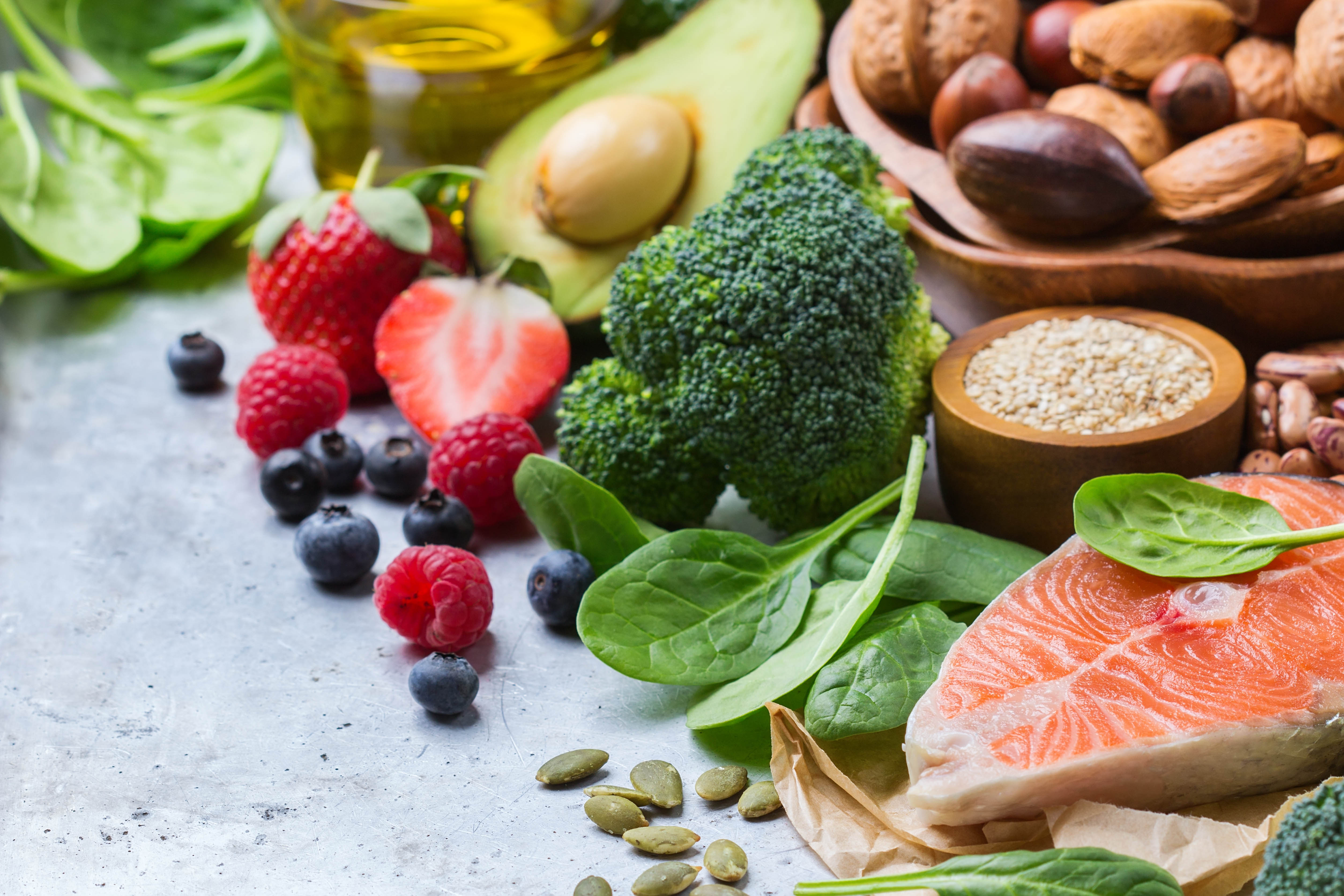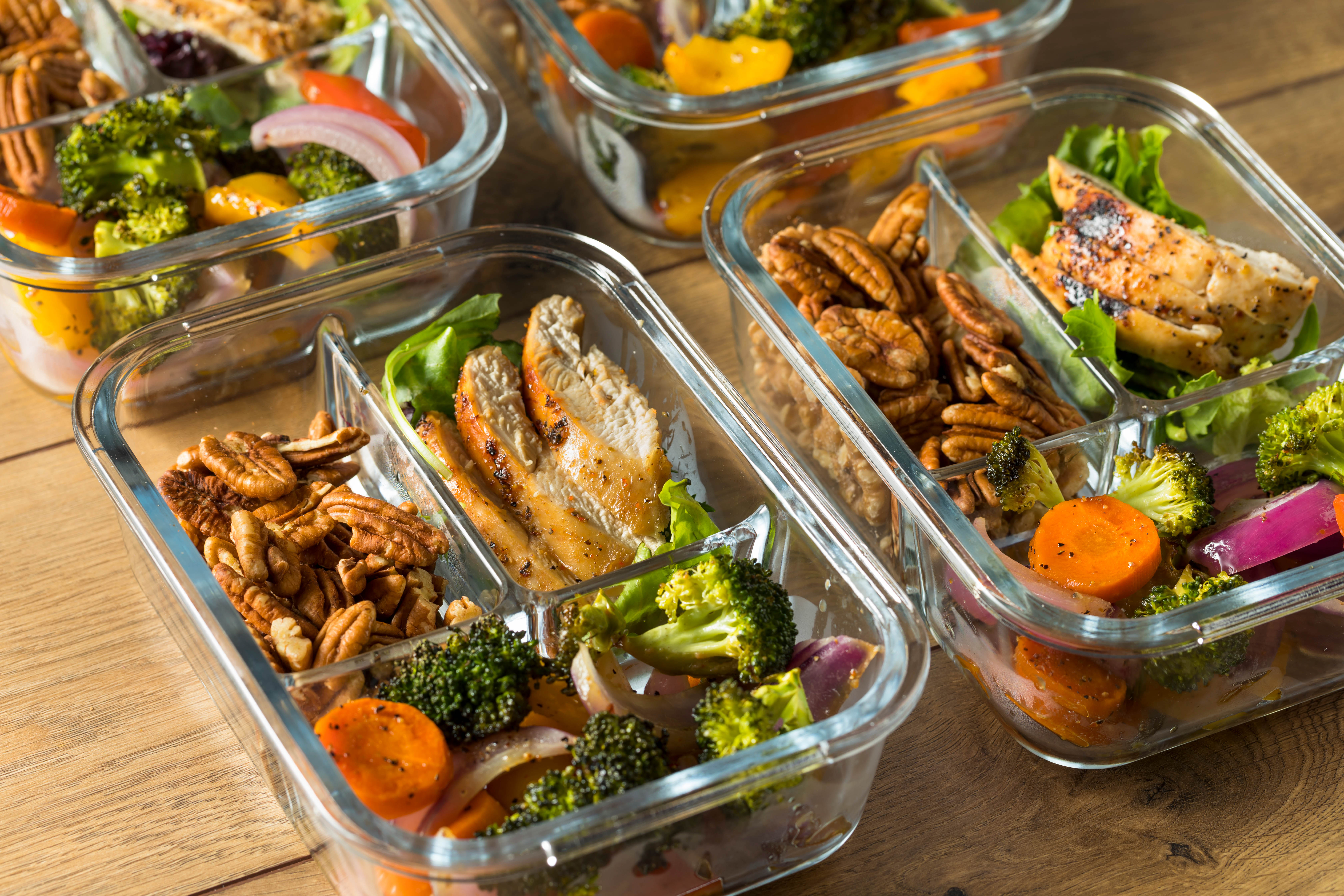Changing Your Diet? Big Picture, Small Steps.
Living Well

Written by: Meg Sharp, Fitness & Wellbeing Consultant, Cambridge Group of Clubs
As humans we’re built to keep trying to improve ourselves: Striving for promotions, faster running times, better listening skills…
This often crops up in our nutrition. At any given moment, scads of Canadians are looking to make improvements in their diets. And why not? Aspiring to adopt practices that make us healthier, more energetic, robust, and mentally sharper is a positive thing.

Here’s a thing: Not only are we built to try and improve; we’re also built to want success. When we try to improve something and it doesn’t work, the outcome isn’t always great. We can end up feeling frustrated, disappointed, even despondent and hopeless: “I’m just not good enough/strong enough/healthy enough…” You get the picture. We blame ourselves, when maybe – actually most likely – we simply weren’t set up for success.
So, here we are with some mindsets and strategies to set you up for success. Whatever your dietary aspirations may be.
Accept where you are right now with curiosity and an open mind. All change journeys begin at the starting line. If you try to start at the halfway point, the curve is too steep. We sometimes don’t like where we are. But that isn’t helpful. Knowing where you’re at will allow you to create strategies that are realistic. Frame thoughts about your current self and your aspirations in an honest, compassionate light.
“I am overweight, too busy, and stressed and never seem to be able to make healthy eating a priority” is not a helpful statement. “I would like to weigh less and, while I’m extremely busy, I am going to figure out a few small steps I can put in place TODAY to start making some healthier eating choices” is much more helpful!
Your brain is dynamic and powerful. It listens to what you tell it. Say positive things. There’s a reason cheerleading was created. It motivates optimal performance. Be your own cheerleader.

Eschew perfection. There is no perfect you. There are thousands of versions of you that are a little healthier than you are today. In different ways. Aspire to be one of those. This is great news. It means there are a number of different paths you can take to get healthier. It means once you’ve arrived at the heathier you, you can stop. Or you can keep going. In a thousand different ways. When you’re ready.

Create small goals too. Lots of them. We’re wired to love progress. We’re wired to love reward. So, getting hits of these two things will positively reinforce whatever behaviour we’re trying to modify. It can be great to determine you’re going to lose 25 pounds, or add 5% muscle to your frame, or drop your cholesterol by 40. These are awesome goals that can drive hope and motivation levels up – and these two factors can help in spades when the going gets tough. The tricky thing is it can be tough to see progress or enjoy rewards based on these goals over the short term.
Awesome changes take time and often require the formation of numerous new habits as well as the dissolution of a few old ones. Small goals are like the stepping stones towards these larger goals. They are extremely powerful if you focus on them and celebrate them such that they become more meaningful and keep that engine of change running. Small goals that deal with affect – how you feel – are particularly effective as the changes in feeling are rewards in of themselves. Here are some goals centered around changes you might expect to feel with certain changes in your diet:
- I want to feel more energetic in the morning.
- I want to feel less bloated after lunch.
- I want to sleep better at night.
- I’d like my cravings for sweets to abate.
- I’d like to feel more satiated throughout the day so I’m not tempted to snack all the time.
- I’d like to set a heathier example for my kids.

Add new dietary foods or habits before you look at what you need to takeaway. Remember, we are built to favour abundance over restriction. Get the new cycle going with additions first. You’ll be more confident and enjoying some positive momentum making the removal of foods and habits easier.
Your ultimate goal will require a mix of food and behavioural changes. As everyone is different, and there are so many fabulous, un-perfect yet healthier versions of you, we can’t possibly list all the right strategies. But here are two powerful lists to inspire and get you started:
Top Food Changes:
- Eat more vegetables.
- Drink more water.
- Eat 30-50gm of lean protein at every meal.
- Eat more raw fruits, vegetables, nuts, and seeds.
- Avoid processed foods as much as possible.
- When eating out, order dishes that are almost exclusively lean protein and vegetable based.
- Order either an appetizer or a dessert but not both. Super charge this step by skipping both.
- Cut back on alcohol.

Top Behavioural Changes:
- Eat slowly. Put your fork down between bites. Be mindful and aware of what you are eating. Enjoy it.
- Find healthy options you actually enjoy. Eating is meant to be pleasurable.
- Create meal plans that are simple. Don’t worry about repetition at the beginning. Lots of time to vary and stretch your wings once you get going.
- Schedule time to grocery shop and make lists.
- Set aside time to prepare extra food once or twice a week and prepare for more than one meal. For example, when you make dinner on Sunday, make enough for lunch Monday and Tuesday. Prepare a bunch of raw vegetables and hummus one evening, and pack portions to take to the office every day.

- Go for a walk after dinner. This helps with digestion and can also help “wash out” a sweet craving that might get triggered when you’ve finished a meal.
- Have dinner with your family, your coworkers, or friends on a regular basis. We are wired for connection and the pleasure that comes from that. When we’re constantly eating alone, the food itself may need to be “larger” (higher in calories, salt, sugar, fat) than when we are also getting pleasure from our dining companions.
- Try to avoid snacking after dinner.
- Cut back on the number of meals you eat out.
- Exercise. Every day if possible. People who exercise are more likely to make healthier food choices and absolutely more likely to keep weight off or maintain muscle mass compared to those who don’t!
- Prioritize sleep. It’s tough to manage cravings and energy slumps when you’re under slept!

Final thought:
Food is complicated. We need food to live and grow. Yet food, for many of us, is not simply fuel. Food can be soothing, calming, delicious, and stimulating. Food can be prepared and shared as a way of nurturing, rewarding, healing, and celebrating. Food for some is a means of artistic expression and for others a way of numbing pain. Changing our habits, and the way we think about and behave around food, can be complicated. Small, realistic steps can edge you in the direction you want to go in a way that is realistic and sustainable. You are fabulous exactly as you are. Right now. You want to change and that’s terrific. There’s no need to rush. We want the change to stick. We even want you to enjoy yourself along the way.
As always: we’re here to help. Click here to connect with one of our nutritional experts.
Adelaide Club – Lauren Neal
Cambridge Club – Sean O’Neil
Toronto Athletic Club – Rob Coates